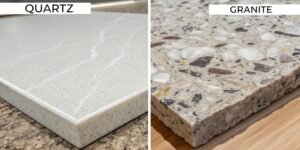Choosing between quartz and natural stone for your countertop can be confusing. You want a material that looks great and lasts, but making the wrong choice can lead to disappointment.
In most cases, quartz is the better option for durability, low maintenance, and hygiene. It's an engineered, non-porous material that resists stains and scratches. Natural stone offers unique beauty, but it requires more upkeep, including regular sealing to prevent damage.
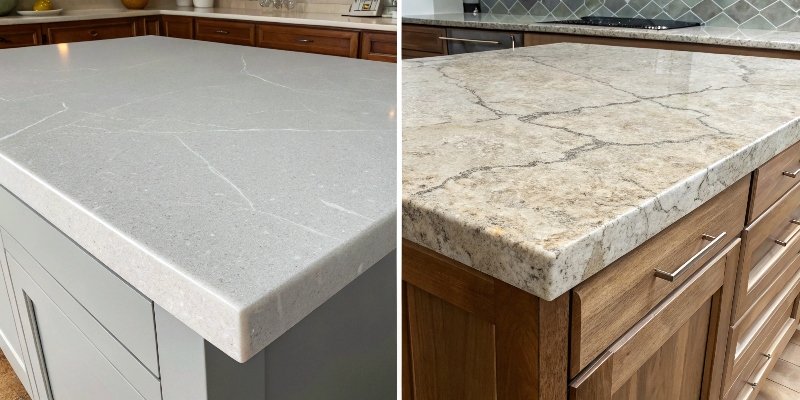
The debate between quartz and natural stone is one I've helped clients navigate for years. Each material has its own strengths and weaknesses. The best choice for you really depends on what you value most for your space—whether it's raw beauty, everyday practicality, or something in between. Let's look closer at the key differences to help you decide.
Which is better, natural stone or quartz?
You're stuck trying to decide between the timeless look of natural stone and the modern functionality of quartz. This choice can feel huge, and you don't want to regret it later.
Quartz often wins for its superior durability and easy maintenance since it is non-porous. Natural stone boasts one-of-a-kind patterns but needs regular sealing to protect against stains and chips. Your best choice depends entirely on what you need for your home and lifestyle.
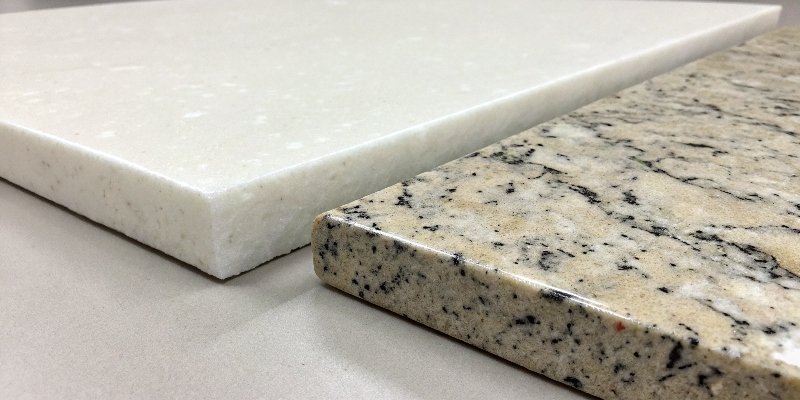
When I talk with clients, the first thing we discuss is durability and maintenance. This is where quartz really stands out. Since it's an engineered stone made from crushed quartz, resins, and pigments, it's incredibly tough and non-porous. In my factory, we put every batch through tests for scratch, stain, and impact resistance. I remember a client from the UK who was tired of her marble countertops staining. She switched to our quartz, and after accidentally spilling red wine, she was amazed it wiped away clean. There was no need for special cleaners or sealing. Natural stones like marble and granite are porous, so they need regular sealing to stop them from staining. They can also chip more easily. So if you want something that's low-maintenance and strong, quartz is usually the winner.
| Feature | Quartz | Natural Stone |
|---|---|---|
| Durability | High (Scratch & Chip Resistant) | Varies (Can Chip & Scratch) |
| Maintenance | Low (No Sealing Needed) | High (Requires Regular Sealing) |
| Stain Resistance | High (Non-Porous) | Low (Porous, Stains Easily) |
| Appearance | Consistent & Uniform | Unique & Natural Veining |
What are the disadvantages of quartz stone?
Quartz seems like a perfect material, but you might be wondering about its hidden flaws. Not knowing its limits could lead to expensive mistakes and a countertop you're not happy with.
The main downsides to quartz are its lower resistance to heat and its unsuitability for outdoor use. The resin binders in quartz can be damaged by high heat from pans, and they can turn yellow or weaken when exposed to direct sunlight over time.
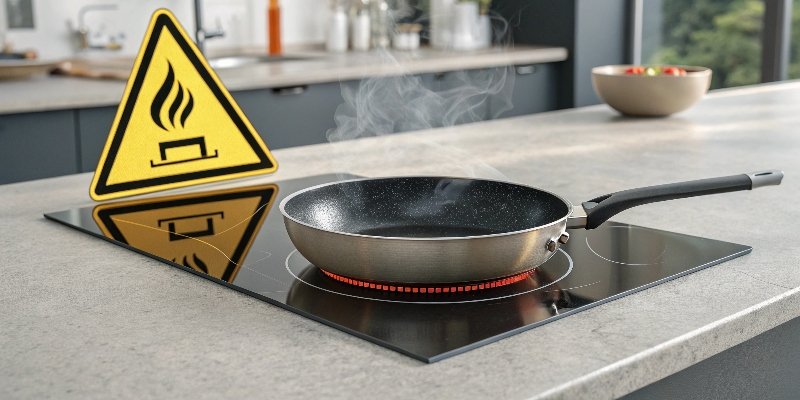
I always make sure my clients understand the limitations of quartz, especially concerning heat and UV light. The resin used to bind the crushed quartz is the key to its durability, but it's also its main weakness. It can't handle high temperatures as well as natural stone. If you place a very hot pan directly on a quartz countertop, you risk scorching the surface or causing a permanent yellow mark. This is called thermal shock, and it can ruin the look of your countertop.
Another big consideration is outdoor use. I once advised a client in South Africa who wanted to build an outdoor patio kitchen. He was leaning toward quartz, but I had to advise against it. The resin binders can degrade under prolonged exposure to UV rays from the sun, causing the color to fade or turn yellow. For his project, we recommended granite instead, as it holds up much better in harsh weather without warping or fading.
What is more expensive, quartz or stone?
You're trying to create your dream kitchen, but you have to stick to a budget. The price difference between quartz and natural stone is confusing and can really affect your project's costs.
Generally, quartz is cheaper than high-end natural stones like rare marble. However, some common granites can be less expensive than quartz. The final cost really comes down to the specific type, quality, and where you are buying it.
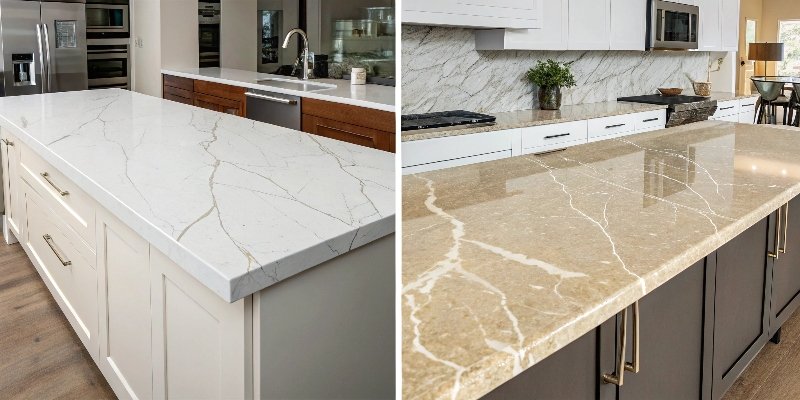
Cost and availability are huge factors in any project. Quartz often comes out as the more affordable option, especially when you're looking at high-end finishes. Since quartz is manufactured, we can produce it consistently in large quantities. This avoids the supply issues you might face with quarried stone. I remember a large commercial project in Canada that needed a massive amount of countertops on a tight budget and deadline. We were able to supply uniform quartz slabs quickly. Sourcing that much natural stone would have been more expensive and taken much longer because of the limits of quarrying.
That said, the market can change depending on your location. In some areas, common natural stones like certain types of granite might be cheaper than quartz. It all depends on local availability and supply chains.
| Stone Type | General Price Range | Key Factors |
|---|---|---|
| Quartz | Mid to High | Consistent pricing, brand name affects cost. |
| Granite | Low to High | Common types are affordable, rare types are very expensive. |
| Marble | High to Very High | Considered a luxury material, price varies by rarity. |
Can I put hot pans on quartz?
You're in the middle of cooking and instinctively look for a place to set down a hot pan. Placing it directly on your quartz countertop could cause permanent, ugly damage.
No, you should never place hot pots or pans directly on a quartz surface. The resins in the material can scorch or discolor from the extreme heat. You should always use a trivet or hot pad to protect your quartz from thermal shock.
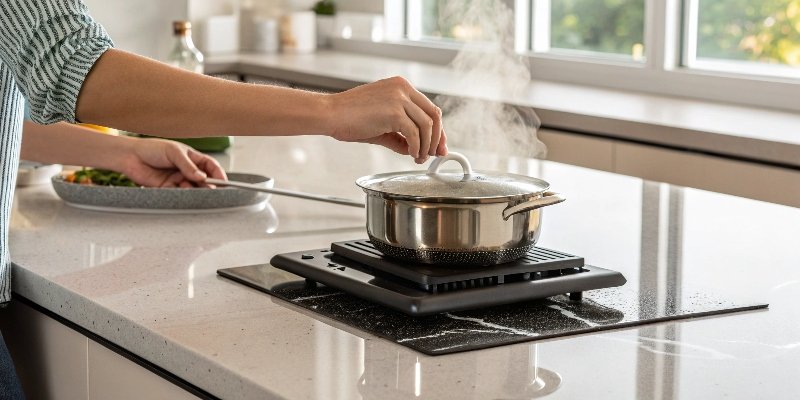
I can't stress this enough to my clients: always use a trivet. While quartz is incredibly durable against scratches and stains, its one true enemy is high heat. The resins that bond the stone particles together can't withstand thermal shock. Placing a pot straight from the stove onto the counter can cause a permanent burn mark or even make the surface crack in rare cases. Natural stone like granite is much more resistant to heat because it was formed under immense heat and pressure naturally.
On the other hand, let's talk about hygiene, another key factor in the kitchen. Here, quartz has a big advantage. Because it's non-porous, bacteria, mold, and mildew have nowhere to hide. I worked with a client in Australia who was renovating his restaurant and needed to meet strict health codes. He chose quartz for the kitchen prep areas after I explained how its sealed surface resists bacterial growth. He's had no issues since. Natural stone, if not sealed perfectly, can trap germs and moisture, which is a major concern in any area where food is prepared.
Conclusion
Ultimately, quartz offers modern durability and simple maintenance, while natural stone provides unique, raw beauty. The best choice depends on your budget, lifestyle, and the look you want to achieve.





